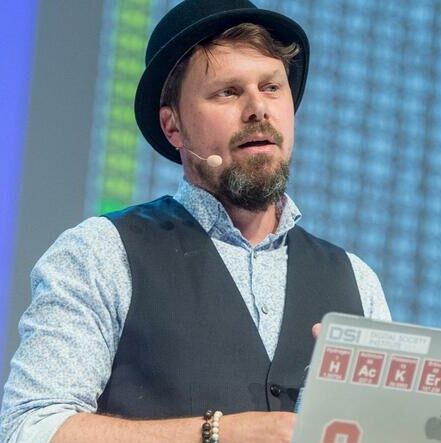Founder Monarch

Dr. Sandro Gaycken is the director of the Digital Society Institute Berlin, founder and CLO of Monarch and founder and Chief Scientist at Hensoldt Cyber GmbH. He is a Fellow at Oxford University's Martin School, an advisor in Harvard Kennedy School's AI Initiative, a project co-lead and research director at Le CNAM Paris, lecturer for cyberwarfare at the NATO Defense College, a director on cybersecurity and cyberdefense strategy in the NATO SPS program and has been named a key innovator within the Vulcan ecosystem of US Special Operations. The main focus of his research and development activities is on cybersecurity, cyberwarfare, hacking, privacy, AI, and the deep tech information society. He is a strong advocate of disruptive innovation and disruptive regulation and has developed a number of cybersecurity technologies ranging from operating systems to hardware to offensive technologies. As a policy advisor, Sandro consults international security institutions, policy-making bodies and companies in the fields of defense and IT. He served as a strategist in the first design of a German Foreign and Security Policy on IT, testified as a subject-matter expert in hearings in the Bundestag and a range of ministries, provides strategic advice to NATO, UNO, EU, IAEA, and a few other governments. He has served as a principal expert witness in international court cases concerned with military cyber espionage, took part in the "Weissbuch Prozess" of the German Ministry of Defense, appearing with Minister of Defense Ursula von der Leyen, and he was the moderator of the interdepartmental dialogues between the German MoD and the MoI. As an industrial advisor, Mr Gaycken advises large enterprises in insurance, banking, production and defense and investment funds in the fields of IT, IT-sec, defense, intelligence, AI and other deep tech topics on a board level. He developed buyer guides and investment methodologies for deep tech topics. Bridging government and industry, he was instrumental in the German-Chinese "No-Spy"-Agreement and assisted in the White House USTR’s effort to mitigate industrial espionage. Devoted to an open discourse and public enlightenment, he published more than 60 scientific monographs and papers, writes frequent op-eds in leading German newspapers like Handelsblatt, FAZ, Süddeutsche, and DIE ZEIT, and comments regularly on intelligence and deep tech matters on mainstream media outlets such as Tagesschau, Heute, NTV